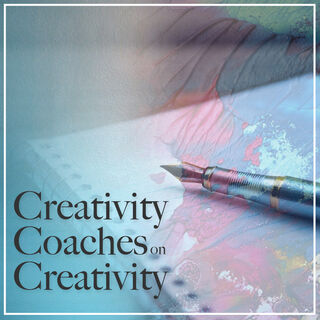Creativity
Being Creative in Moving Through Blocks
Creativity coach Karen Kornhauser provides top tips on the creative life.
Posted April 29, 2021 Reviewed by Matt Huston
Key points
- Feeling blocked creatively, unable to start or continue a project, is a common problem.
- Noticing what's happening and how it feels in the body may help unlock inspiration.
- Even a small shift can bring creative rewards.

The most usual presenting problem a client brings to a creativity coach is that he or she is not creating. The client is blocked, resistant, stalled, unmotivated. Typically, this blockage has lasted for some considerable amount of time—certainly weeks, maybe months, maybe even years.
What might clients try to do in order to deal with this pernicious challenge? In today’s post, creativity coach Karen Kornhauser explores this theme.
Karen explains:
Imagine your creative energy flowing like a great river, free and full, bursting with life and possibility. Now imagine your creative energy caught in a logjam or the river suddenly turning into ice. When you find yourself suddenly stuck, unable to move forward with your creative work, most likely what’s happening is that there is constriction, and what’s needed is room to expand.
When dealing with a creative block, whatever has caused this situation matters far less than how you respond. Here’s one approach for a return to flow:
1. Name what’s happening.
Through journaling, talking to a friend, a coach, or to yourself on a recording, take the time to name what’s going on. Get the details of your situation out on the table and give yourself some room to breathe. Name the goal you’re pursuing and why it matters to you. Just the act of getting your thoughts out into the open begins to create a movement and flow of energy previously held inside.
2. Bring your attention to your physical body.
Now thinking about the block… what are the physical sensations you experience, and where do they reside? Are you feeling the tension in your gut? Does your throat feel constricted? Is there a heaviness you notice in your shoulders?
If possible, put your hand right where you feel the constriction and bring some compassion to this part of yourself.
Are there more details you can flesh out?
Are there specific qualities or textures you notice in this part of your body? Is there an image or metaphor that comes to mind? What thoughts are arising? Are there words that you hear?
Perhaps you feel breathless with a heaviness in your chest as you picture an impassable mountain ahead that you believe you need to climb. Perhaps you feel like you’re dragging around someone from your past because of old trauma or upset that is weighing you down.
3. Embody the experience.
Find a simple way to engage with the experience you just described and be playful with it. For example, if you feel like you’ve been dragging someone around from your past, find a prop that has some weight and literally drag it around for a while. Feel the extra weight and the quality of your effort to move forward as you imagine your goal.
Be curious, ask questions, explore different responses to the experience of stuck-ness as if it were a person. Let this part speak to you and hear what it has to say. Perhaps there’s a belief that what you’re trying to do is easy, but some part of you is not finding it easy at all. Acknowledge that out loud—even to yourself—and let the situation evolve and change.
Notice the subtle nuances and shifts in your experience. If you feel all tangled up in seaweed unable to flow, slow down, take a deep breath, and allow creative solutions to arise naturally.
In conclusion
Taking time to engage with your block and play with these elements will bring some shifts. Notice them; acknowledge them. They may be quite subtle, simple, or small, but enough to get you back into a flow. And when you find yourself faced with a creative block, a small shift is actually a big deal!


